Armenian Studies Program
Temple of Garni
Summary: At the site of Garni, some fifty kilometers northeast of modern Erevan, a number
of important constructions survive from three different periods. The oldest is made
up of a number of important fragments of a defensive wall around the locality. Dating
to the first century before Christ, the wall is made up in parts of enormous monolithic
stones carefully carved and placed upon each other without the use of mortar. This
technique was known throughout the Middle East in the Roman period. The second period
is represented by the splendid, though small, temple of Garni, following the general
design of a Greco-Roman temple so characteristic of the Mediterranean world. There
is still some debate concerning the use of the building (temple or summer residence)
and its date of construction (first or third century A.D.), but no argument about
the elegance of its proportions or the skill of its decorative friezes. The temple
remained standing until 1679 when it was destroyed during an earthquake. It was restored
in the 1970s and has the distinction of being the only Greco-Roman temple standing
above ground in the entire Soviet Union.
The most recent architectural vestige at Garni is the bath, probably of the fourth
century, excavated and restored like Erebuni, Karmir Blur, and the temple of Garni
with the encouragement and support of the Armenian government. The baths, built of
brick and volcanic stone, are small and follow the general layout of Roman baths with
a tepidarium, caldarium, and frigidarium (a warm washing room, a steam room, and a
cooling room). Since Armenia was pagan for centuries before Christianity, did not
other temples exist? Yes, we know of them from the Armenian histories of the fifth
century, but as the historians tell us, the first Christians led by St. Gregory and
his followers, in their zeal, willfully destroyed all the sanctuaries of the pagan
religion, leaving us with an architectural void.
-
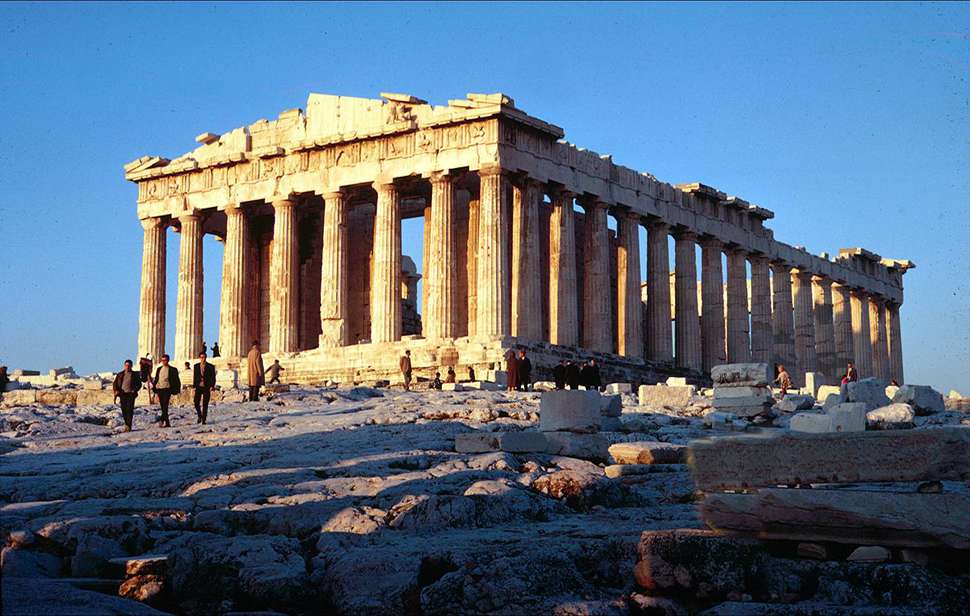
Garni - Parthenon -
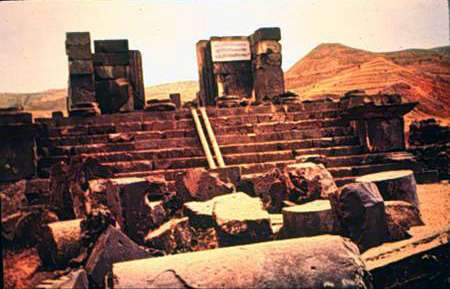
Garni - Pre 1970's -
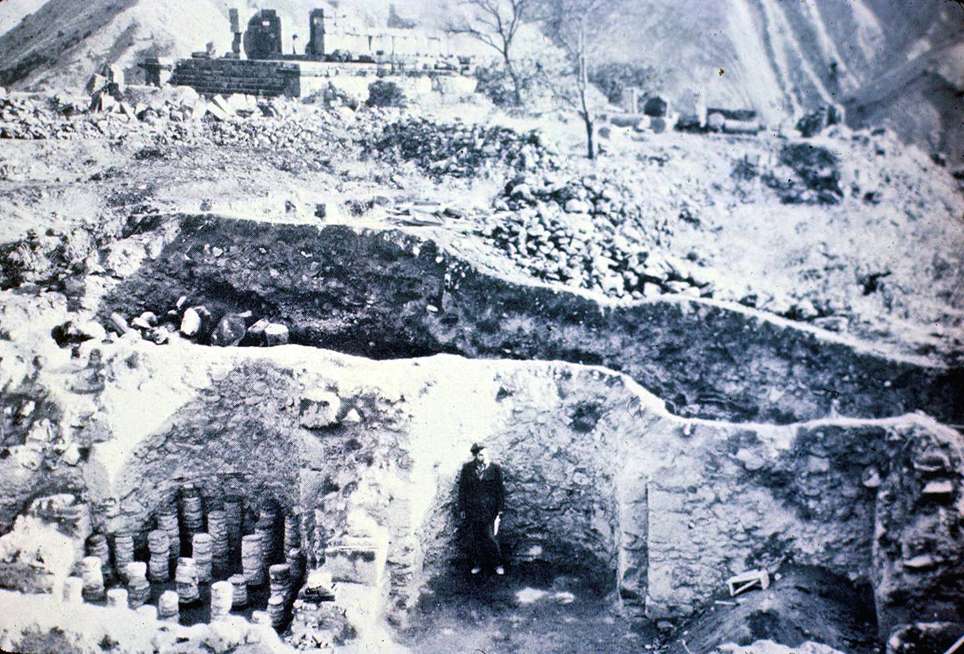
Garni baths -
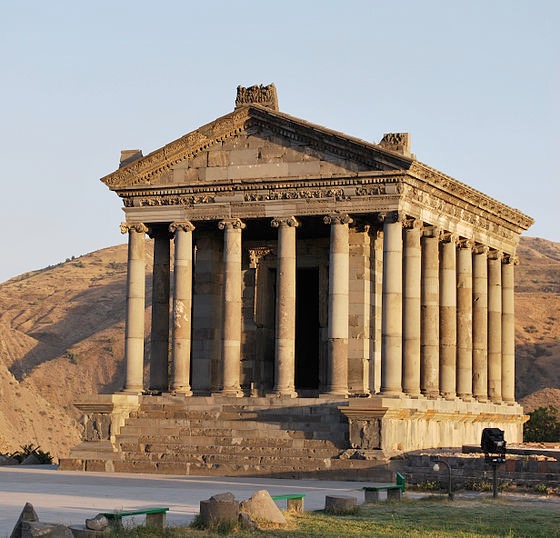
garni -
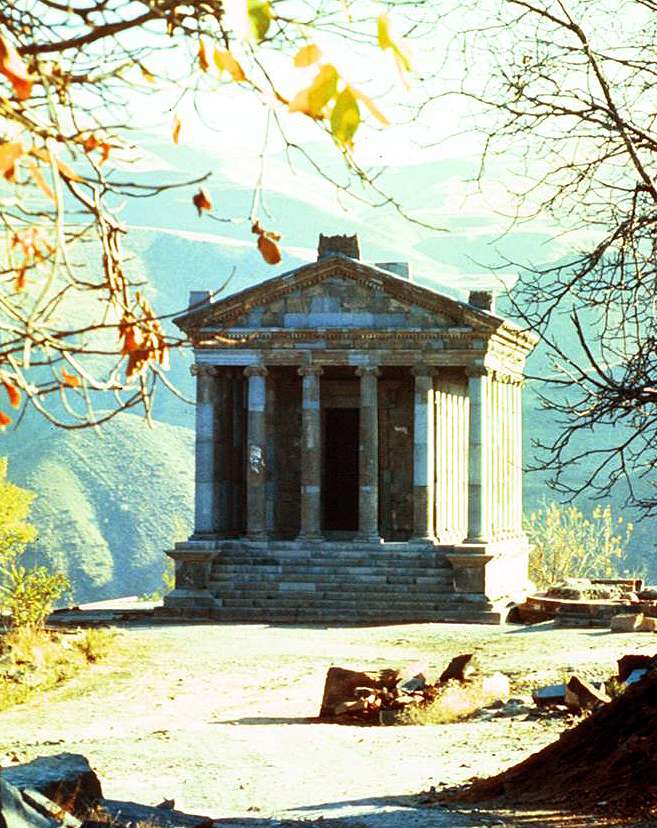
Garni -
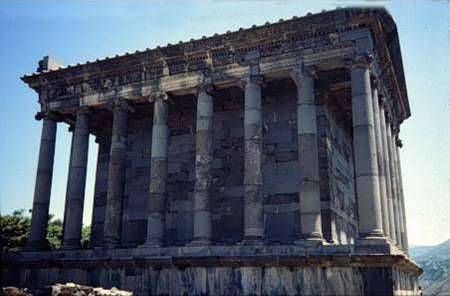
Garni -
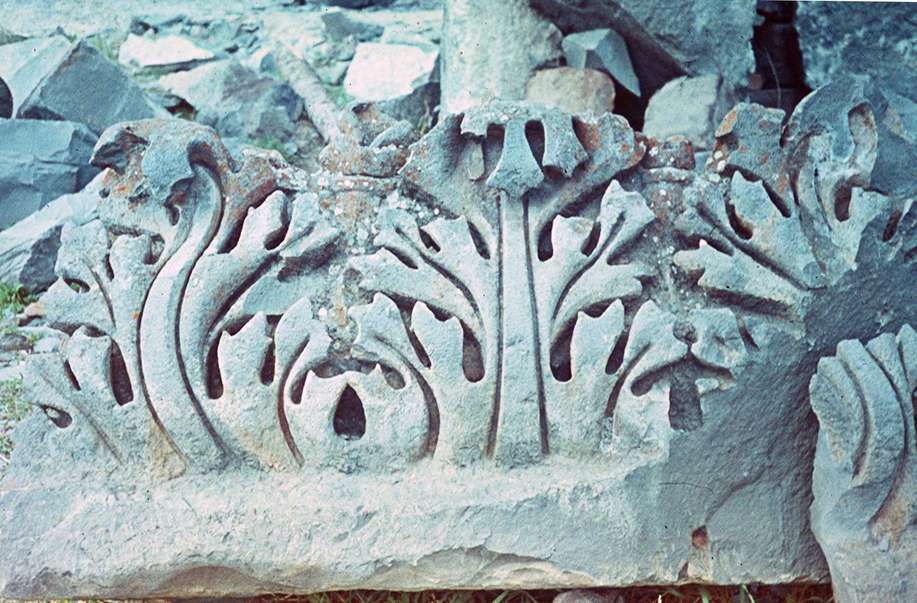
Acanthus leaf sculpture -
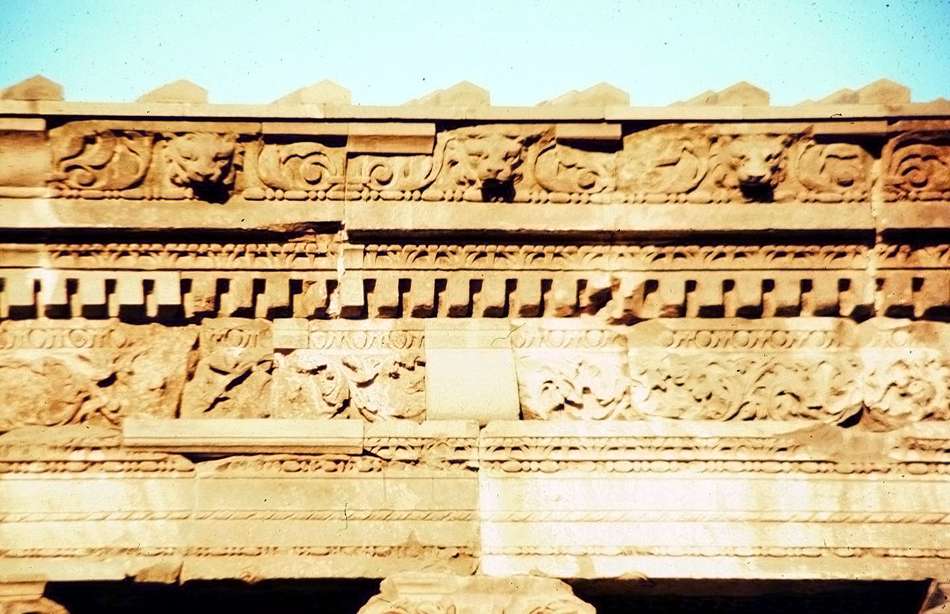
Garni - Frieze -
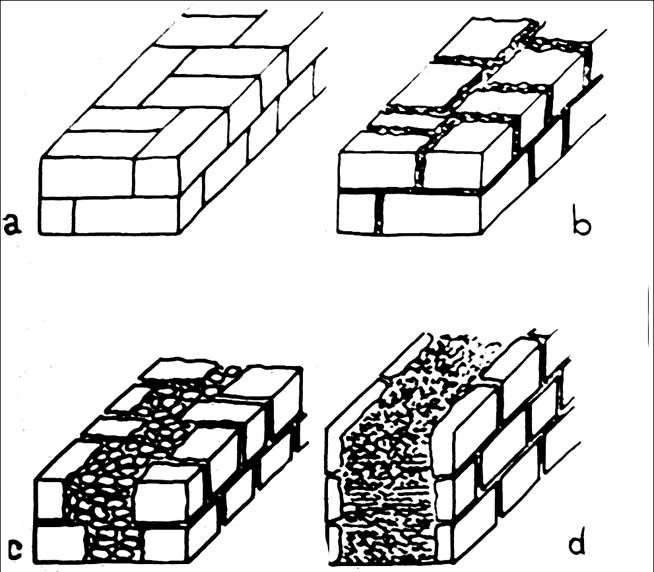
construction techniques -
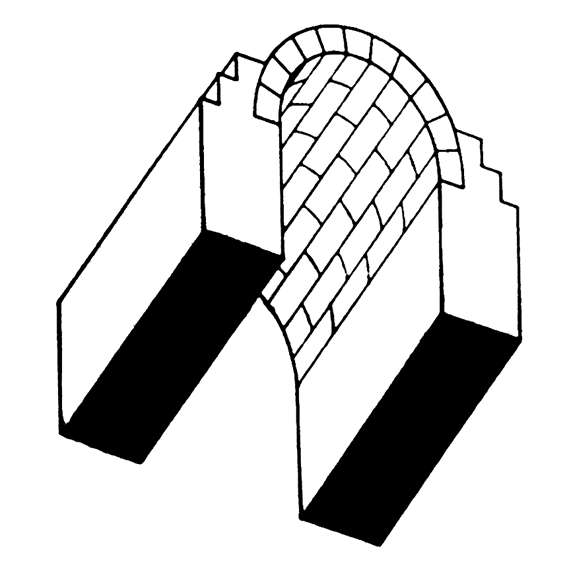
Garni - arch -
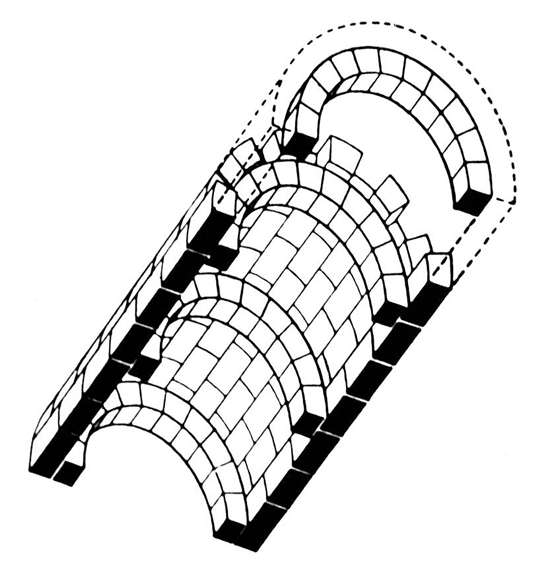
Barrel vault